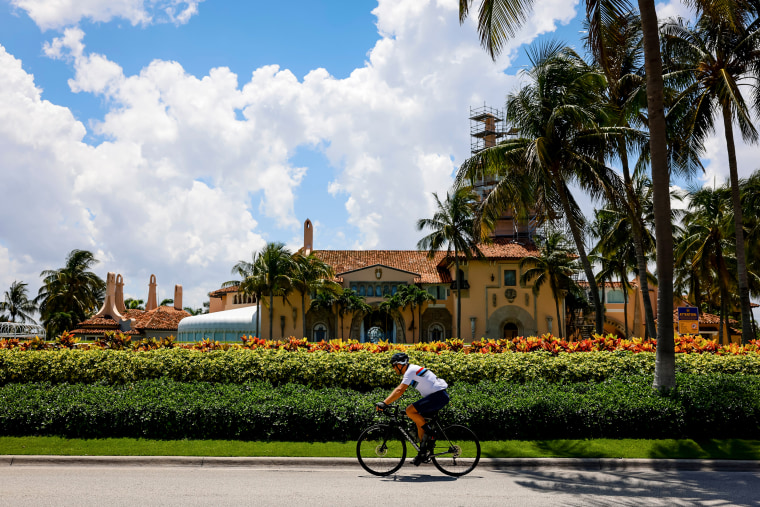WASHINGTON — The special counsel prosecuting Donald Trump has asked the judge in the Mar-a-Lago classified documents case to reconsider an order the government argues could identify more than two dozen witnesses and threaten their safety and testimony.
Trump's lawyers have asked for unredacted documents to be turned over, which lawyers for special counsel Jack Smith want to block.
In a 24-page filing in federal court in Florida, prosecutors for Smith said the court applied the wrong legal standard when U.S. District Judge Aileen Cannon, who is overseeing the case, ordered the unsealing of materials. Cannon issued an order in response on Friday that delayed her initial decision.
The filing notes an exhibit that includes “information about uncharged potentially obstructive conduct by a defendant, and speculation about witness tampering by an uncharged individual.” According to the prosecutors, this witness declined to have his interview recorded.
Trump was charged last year along with Walt Nauta, a personal aide to the former president, and Carlos De Oliveira, who worked at Mar-a-Lago. All three pleaded not guilty.
Smith argued that making the filings public would disclose the identities of witnesses prepared to testify against Trump, including career civil servants and former Trump advisers, and what they said to federal investigators and the grand jury.
The decision risks exposing them to “significant and immediate” intimidation after the government fought to keep their information private, according to the filing.
“Revelation of these witnesses’ identities, or the substance of their interviews with the FBI, dangerously risks exposing them,” said the special counsel, pointing to a “well-documented pattern” of “threats, harassment, and intimidation” against those involved in cases against Trump.
Cannon “has suffered similar death threats,” prosecutors for Smith write.
Other exhibits disclose details about the August 8 search of Trump’s Mar-a-Lago club where classified documents were seized, including the names of the FBI agents involved, two Justice Department attorneys who were present, and non-public details of the property’s layout. Trump has lashed out at “the Gestapo” agents who conducted the “raid,” and at the time of the search, suggested the government might seek to “plant” implicating documents.
Another exhibit discusses how two potential witnesses went about finding lawyers after Smith raised earlier questions over potential conflicts of interest for lawyers paid by Trump. After switching lawyers last year, one witness recanted previous false testimony and shared new information with the special counsel’s team, which led to the superseding indictment.
The filing also reveals how Trump's team is seeking to turn over an FBI report of an interview with a former Trump White House official who revealed privileged information about the classification process. Trump maintains that he declassified the sensitive government records that federal investigators seized from his residence after he left office.
The special counsel has sought to block Trump’s legal team from viewing certain information and has gone back and forth with the defense over how much information should be redacted or withheld in full.
One potential witness is already facing threats, with Smith’s team this week revealing in a separate filing that the U.S. attorney’s office had opened an investigation.
The case is set to go to trial in May but risks being delayed. Lawyers for Trump are seeking to dismiss the charges with a series of motions expected later this month and extend certain deadlines in the case. A scheduling conference is set for March 1.
Trump faces criminal charges of willfully retaining classified documents, including national defense information, making false statements and representations, conspiracy to obstruct justice, withholding a document or record, corruptly concealing a document, concealing a document in a federal investigation, and a scheme to conceal.
